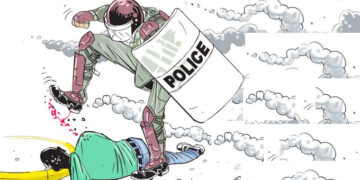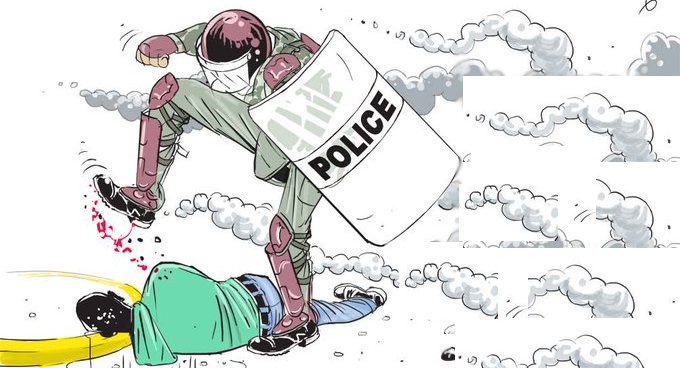By Ebi Kesiena
A Kenyan court on Friday found three police officers and an informer guilty of murdering a human rights lawyer, his client and their driver, six years after the killings triggered angry protests.
The bodies of lawyer Willie Kimani who had criticised police abuse as well as his client Josephat Mwenda and driver Joseph Muiruri were found wrapped in sacks and dumped in a river outside Nairobi in June 2016.
The torture and killing of the three men sparked fury in Kenya, where many people fear the police.
On Friday, high court judge Jessie Lessit ruled that three officers as well as a police informer were guilty of murder. A fourth policeman was acquitted.
“I am satisfied that there was no other reasonable hypothesis that can be made on the basis of the evidence before me except that of guilt,” she said.
Kimani was defending a motorbike taxi driver who accused policeman Fredrick Leliman of shooting him for no reason at a traffic stop in 2015.
Fredrick Leliman was among the three officers found guilty in Friday’s verdict.
The charge carries a maximum penalty of death. Sentencing will be announced at a later date.
When authorities found his body, Kimani’s wrists were bound with rope, three of his fingers had been chopped off and his eyes appeared to have been gouged out.
Police in Kenya have been accused in the past of running hit squads targeting those including activists and lawyers investigating alleged rights abuses by police.
“We hope that this judgement is a step towards police accountability,” the non-profit Kenya Human Rights Commission said on Twitter.
Kenya’s parliament established the Independent Policing Oversight Authority (IPOA) in 2011 to provide civilian scrutiny of a powerful institution whose reputation also ranks among the country’s most corrupt.
Only a handful of officers have been convicted as a result of IPOA investigations, even though the watchdog has examined more than 6,000 cases of police misconduct, according to data covering the period from its inception to June 2020.
Activists largely defend IPOA’s record, saying police often frustrate inquiries by refusing to cooperate.




































